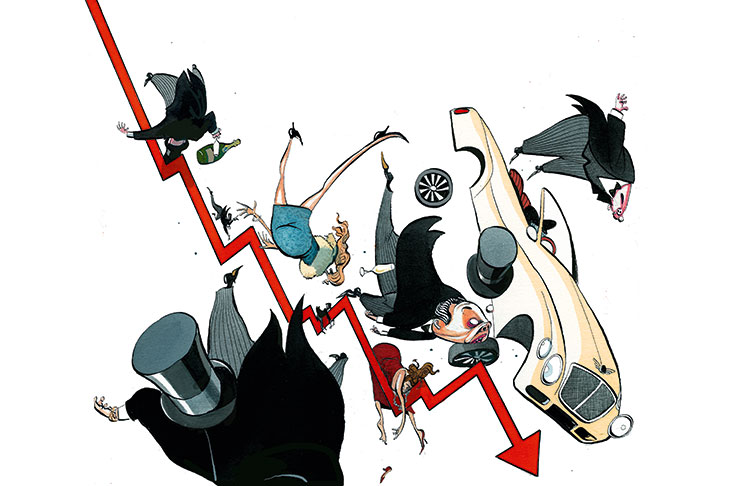The government will ‘Buy British’ whenever possible. A new law would force every public body to publish the percentage of supplies bought from domestic suppliers. And Gareth Southgate will be appointed as the country’s new management tsar, tasked with turning every worker into a winner. Okay, I admit I made that last one up. The rest, however, were among the blizzard of policy announcements from Labour’s shadow chancellor, Rachel Reeves, over the weekend. Less than three months into her new role, she, along with Sir Keir Starmer, has clearly decided to shift Labour economic policy towards tub-thumbing economic nationalism.
But hold on. Is that really a good idea? Sure, it is easy to understand what she is up to. Reeves wants to move Labour away from its ‘Remain’ tag, ditch the party’s wonky economic globalism, and reconnect with some of those Red Wall voters who, the Labour party seems to have suddenly discovered, are a lot more patriotic than it previously realised. She is no doubt hoping to steal a little of Boris Johnson’s flag-waving popularity. And in fairness, there is space to shift economic policy in a more nationally self-interested direction now that we are out of the European Union. The trouble is, there are three big flaws in Labour’s sudden change of direction.
Reeves knows perfectly well that simple-minded protectionism is always a mistake
First, Reeves is a lot brighter than this. A former Bank of England economist, she knows perfectly well that simple-minded protectionism is always a mistake. There is nothing especially good or bad about buying British made goods. It depends on the quality and the price. The best strategy for an advanced industrial economy is to buy the cheapest and best products from around the world and to balance the books by selling the stuff we are best at making to the rest of the world. That way everyone gets richer.
Next, surely no one actually believes this policy would be implemented if Labour were in office. The pledge will be just as empty as Gordon Brown’s promise of ‘British jobs for British workers’ in one of his first major speeches as Prime Minister. After that, we promptly welcomed another few million immigrants willing to work for minimum wage.
Finally, and perhaps worst of all, it is a wasted opportunity. There are plenty of constructive ways the left of centre could embrace Brexit. For example, we could restructure our tariffs so we buy more food from Africa (currently 4 per cent of our imports against 25 per cent from the EU) which would be a great way of helping those nations develop. We could encourage more automation to drive up wages now that imported labour is less plentiful. And we could deregulate to create more gig work, and to encourage more tech companies to move here. Any of those would be far better than simply trying to outflank a government that already leans in the direction of statist economic nationalism.
In truth, the Conservatives are already moving too far down that road. The Johnson administration is too keen on intervention, planning, industrial strategy, and state spending. It is a Big Government party. We could really use some thoughtful liberal opposition to that, and Reeves is certainly smart enough to know what the lines of attack should be. Instead, Labour has just decided to compete in the worst possible way – and that is a shame both for her party and the country.






Comments